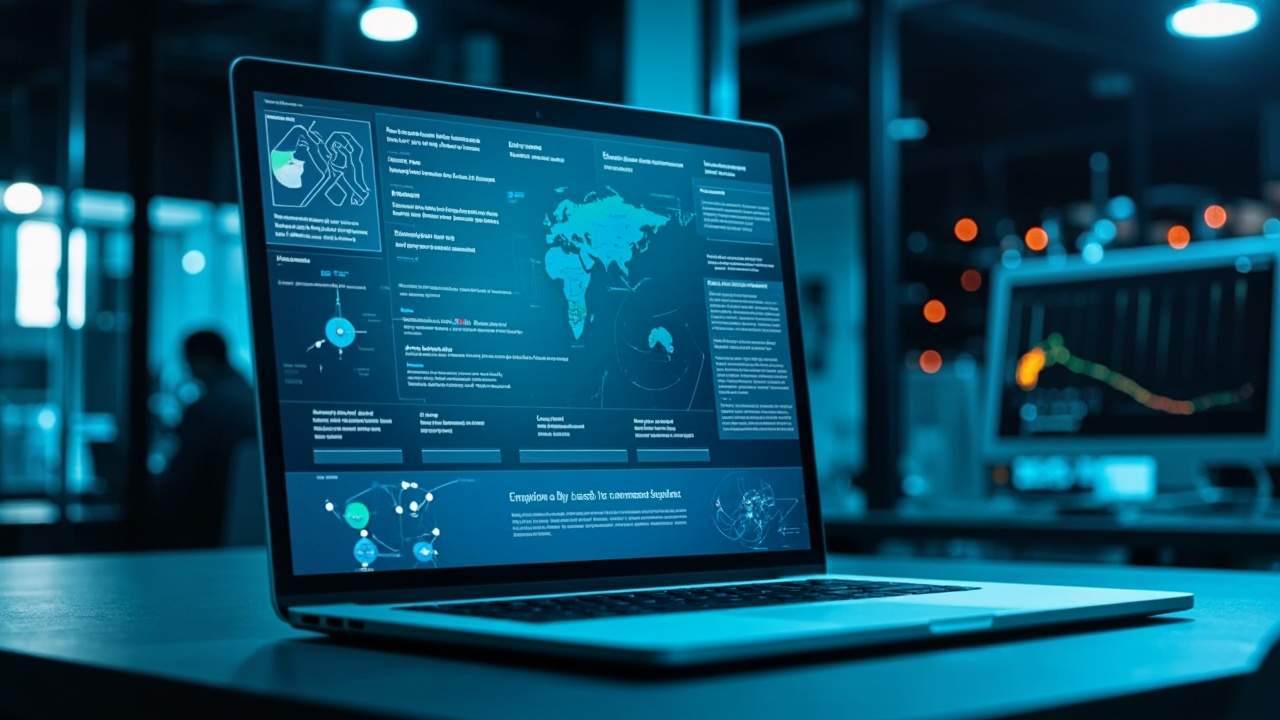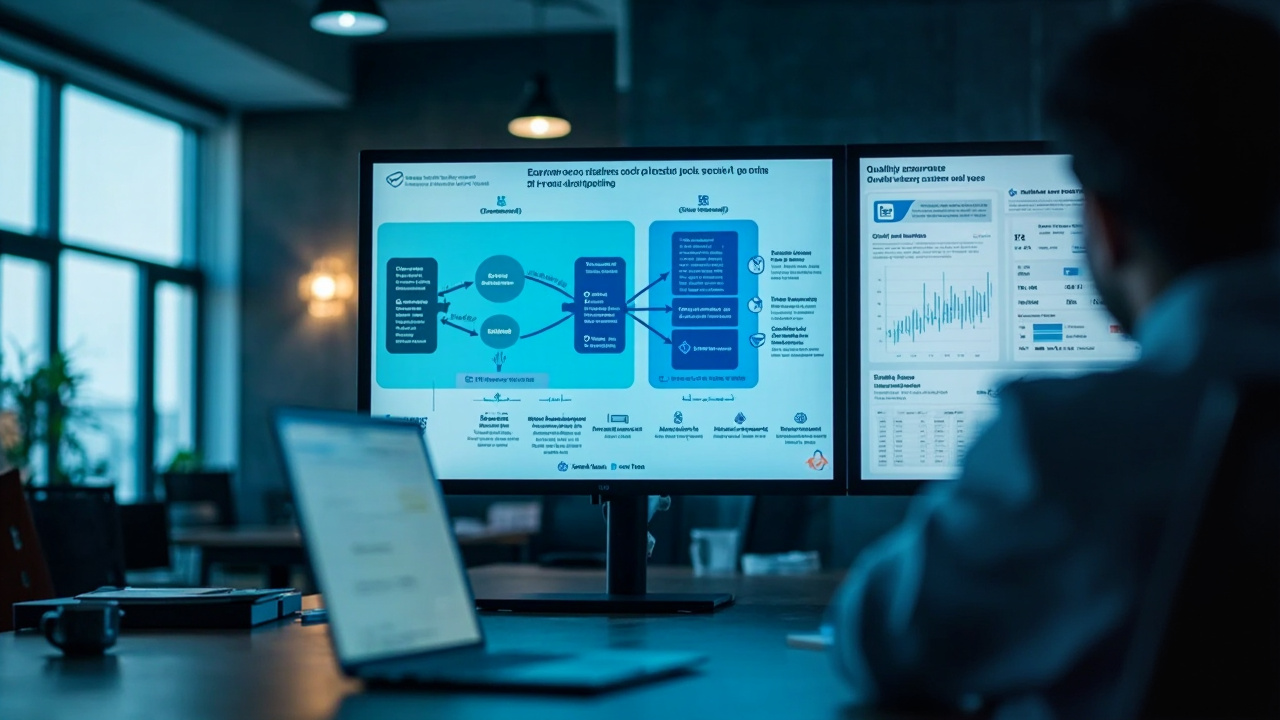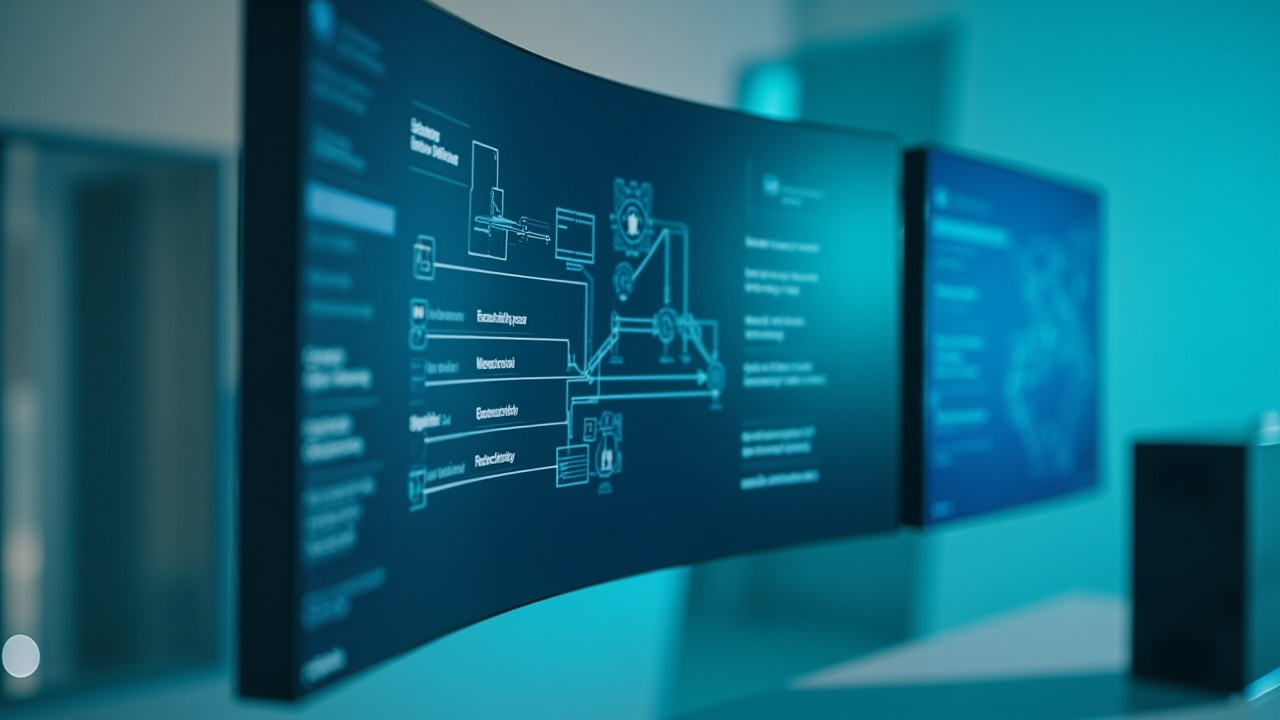In the rapidly evolving landscape of software development, maintaining high-quality standards is more critical than ever. As software applications become more complex and users demand swift updates, the pressure on development teams to deliver flawless software is immense. Yet, traditional software testing methods often falter under these demands, leading to costly errors and delays. In this comprehensive exploration, we delve into the transformative world of software testing, examining how cutting-edge technologies, including AI innovations like GenQE, are revolutionizing this essential facet of software engineering.
Imagine a world where software testing is not a bottleneck but a seamless part of the development process. A world where testing adapts and evolves with the software, identifying and addressing issues before they escalate. This is not a distant dream but an emerging reality, thanks to advancements in artificial intelligence and machine learning. In this article, we will journey through the intricacies of software testing, explore its challenges, and unveil how AI-powered tools are reshaping the future of software quality assurance.
Readers will gain a deeper understanding of the current landscape of software testing, the limitations of traditional methods, and how innovative solutions are paving the way for more efficient, accurate, and adaptive testing processes. Whether you’re a developer, a quality assurance specialist, or simply someone interested in the intersection of technology and quality, this article will provide valuable insights into the future of software testing.
The Foundations of Software Testing: Understanding the Basics

Software testing is a critical process that ensures applications function as intended, delivering the desired outcomes for users. At its core, software testing involves verifying that a system meets specified requirements and identifying any defects before the software is deployed. But what exactly does this entail, and why is it so important?
The Purpose and Importance of Software Testing
Software testing serves multiple purposes. Primarily, it ensures the reliability and functionality of a software application. By systematically examining various aspects of the software, testers can confirm that the product performs as expected under different conditions. This process is crucial not only for the satisfaction of end-users but also for the protection of the software’s integrity and security.
Beyond functionality, software testing also plays a vital role in maintaining user trust. In an era where users have little tolerance for errors, a minor bug can lead to significant dissatisfaction and brand damage. Thus, software testing acts as a safeguard against these potential pitfalls, ensuring that applications are robust and reliable.
The Methodologies of Software Testing
To achieve these objectives, various methodologies are employed in software testing. Traditional approaches include manual testing, where testers execute test cases by hand, and automated testing, which uses scripts and tools to perform tests. Each method has its strengths and challenges, often requiring a strategic blend to optimize results.
Manual testing, while labor-intensive, is invaluable for exploratory testing and scenarios where human intuition and reasoning are essential. On the other hand, automated testing excels in repetitive and regression testing, where scripts can efficiently execute tests at scale. However, as software complexity grows, both methods face limitations that necessitate more advanced solutions.
“In the realm of software testing, understanding the basics is the first step towards mastering the art of quality assurance.”
Transitioning to Advanced Solutions
With the foundational understanding of software testing principles, the next step is to explore how these traditional methods are evolving. In the following sections, we will delve into the challenges these methods face and how AI-powered solutions like GenQE are stepping in to address them.
Challenges in Traditional Software Testing Methods

Despite the critical role software testing plays, traditional methods often encounter significant challenges. As software applications become more intricate, the limitations of conventional testing approaches become increasingly apparent.
The Complexity Conundrum
One of the primary challenges is the sheer complexity of modern software applications. With the rise of technologies such as microservices, cloud computing, and mobile platforms, software systems are no longer monolithic entities. They are distributed, dynamic, and constantly evolving, making comprehensive testing a daunting task.
Traditional testing methods struggle to keep pace with this complexity. Manual testing, for instance, is time-consuming and prone to human error, especially when dealing with large-scale applications. Automated testing, while faster, often requires extensive scripting and maintenance, which can be resource-intensive and costly.
The Speed of Development Cycles
Another significant challenge is the accelerated pace of software development cycles. In today’s fast-paced digital world, organizations aim for rapid release cycles to stay competitive. This demand for speed places enormous pressure on testing teams to deliver results quickly without compromising quality.
Unfortunately, traditional testing methods are not always equipped to handle this pressure. Manual testing can become a bottleneck, delaying releases and increasing time-to-market. Automated testing, while faster, may still require significant setup time and maintenance, particularly when dealing with frequent changes in the software.
“The complexity and speed of modern software development have outpaced traditional testing methods, creating a need for more adaptive solutions.”
The Need for Adaptive Solutions
Given these challenges, there is a growing need for testing solutions that are not only efficient but also adaptive and intelligent. The next section will explore how AI-powered tools like GenQE are addressing these challenges, offering innovative solutions that enhance the efficacy and efficiency of software testing.
The Rise of AI in Software Testing

As software testing grapples with the challenges of complexity and speed, artificial intelligence emerges as a powerful ally. AI technologies are transforming the landscape of software testing, offering innovative solutions that enhance efficiency, accuracy, and adaptability.
AI-Driven Test Automation
One of the most significant contributions of AI to software testing is the automation of test cases. By leveraging machine learning algorithms, AI can analyze software requirements and user behavior to generate test cases automatically. This capability not only reduces the reliance on manual test case design but also improves test coverage and efficiency.
AI-driven test automation is particularly beneficial for regression testing, where repeated testing is necessary to ensure new changes do not introduce defects. Tools like GenQE exemplify this innovation by automating the creation and execution of test cases, allowing testing teams to focus on more strategic tasks.
Intelligent Defect Detection
AI also enhances defect detection by identifying patterns in test results to spot anomalies and potential defects early in the development cycle. This proactive approach is crucial in preventing critical issues from reaching production, minimizing the risk of costly errors and downtime.
For example, GenQE’s AI-powered defect detection capabilities enable it to analyze test data continuously, identifying potential issues before they escalate. This not only improves the quality of software but also accelerates the development process by reducing the time spent on debugging and fixing defects.
“AI technologies are not just enhancing existing testing processes; they are redefining what is possible in the realm of software quality assurance.”
The Future of AI in Testing
The integration of AI in software testing is just the beginning. As AI technologies continue to evolve, their potential to revolutionize quality assurance processes will only grow. In the next section, we will explore how AI-driven tools like GenQE are seamlessly integrating into modern development environments, driving efficiency and innovation.
Seamless Integration of AI Testing Tools in DevOps

In the modern software development landscape, DevOps practices are integral to achieving continuous integration and continuous delivery (CI/CD). AI testing tools are becoming indispensable in this context, seamlessly integrating with DevOps pipelines to enhance testing efficiency and effectiveness.
The Role of AI in DevOps Pipelines
AI testing tools like GenQE play a crucial role in DevOps environments by automating and streamlining testing processes. They offer seamless integration with CI/CD tools such as Jenkins, GitHub Actions, and Azure DevOps, allowing automated testing to become an integral part of the development pipeline.
By incorporating AI-driven testing into DevOps pipelines, organizations can achieve faster release cycles without compromising quality. AI tools can intelligently prioritize and execute test cases based on risk analysis, ensuring that critical areas are tested first. This capability optimizes testing efforts, enabling teams to focus on high-impact defects.
Enhancing Collaboration and Efficiency
AI testing tools also enhance collaboration and efficiency within DevOps teams. By automating repetitive testing tasks, these tools free up valuable time and resources, allowing developers and testers to focus on innovation and quality improvement.
GenQE, for instance, offers advanced analytics and reporting capabilities, providing teams with detailed insights into software quality trends. These insights enable teams to make informed decisions and collaborate effectively, ultimately enhancing the overall quality of the software.
“In the fast-paced world of DevOps, AI testing tools are the catalysts for achieving true agility and quality in software development.”
Looking Ahead: The Future of AI in DevOps
As DevOps practices continue to evolve, the integration of AI testing tools will become even more critical. In the next section, we will explore the benefits of AI-powered testing in reducing costs, improving accuracy, and accelerating time-to-market, illustrating why these tools are essential for modern software development.
The Tangible Benefits of AI-Powered Testing

The integration of AI-powered testing tools in software development offers a myriad of tangible benefits. From reducing costs to improving accuracy and accelerating time-to-market, these tools are essential for achieving modern software development goals.
Cost Reduction and Efficiency Gains
One of the most significant benefits of AI-powered testing is cost reduction. By automating repetitive testing tasks, AI tools significantly reduce the manual effort required, leading to lower maintenance costs and faster defect detection. This efficiency translates into substantial cost savings for organizations.
For instance, GenQE’s self-healing automation capabilities minimize maintenance efforts by automatically adjusting test scripts when UI elements change. This reduces downtime and ensures that testing processes remain efficient, even in dynamic environments.
Improved Accuracy and Reliability
AI-powered testing also enhances the accuracy and reliability of test results. By leveraging machine learning algorithms, these tools can detect anomalies and potential defects with greater precision than traditional methods. This heightened accuracy minimizes the risk of human error, ensuring that software is thoroughly tested and reliable.
GenQE’s AI-driven defect detection capabilities, for example, enable it to identify issues early in the development cycle, preventing critical defects from reaching production. This proactive approach enhances the overall reliability of the software, leading to higher user satisfaction and trust.
“AI-powered testing tools are not just a luxury; they are a necessity for organizations aiming to deliver high-quality software in today’s competitive market.”
Accelerating Time-to-Market
In addition to cost and accuracy benefits, AI-powered testing tools accelerate time-to-market by streamlining testing processes. By automating test case generation and execution, these tools enable teams to deliver software faster without compromising quality.
For organizations looking to stay competitive in the fast-paced digital landscape, the ability to deliver high-quality software quickly is a significant advantage. In the next section, we will explore how AI-powered testing tools are paving the way for more scalable and adaptive testing processes, ensuring that they remain relevant in the face of evolving software requirements.
Scalability and Adaptability in AI-Powered Testing

As software applications grow in size and complexity, the need for scalable and adaptable testing solutions becomes increasingly critical. AI-powered testing tools are uniquely positioned to address these needs, offering solutions that can easily adapt to evolving software requirements.
The Need for Scalable Testing Solutions
In today’s digital age, software applications must be scalable to accommodate growing user bases and increasing demands. This scalability extends to testing processes, which must be capable of handling large volumes of test cases and diverse testing scenarios.
AI-powered testing tools like GenQE offer comprehensive test coverage across various platforms, including web, mobile, APIs, and cloud environments. This extensive coverage ensures that applications function seamlessly across different devices and operating systems, providing a scalable solution for modern software testing needs.
Adapting to Evolving Requirements
In addition to scalability, adaptability is a key feature of AI-powered testing tools. As software requirements evolve, these tools can adapt to new technologies and methodologies, ensuring that testing processes remain relevant and effective.
GenQE, for example, leverages AI and machine learning to continuously learn from historical data and user behavior, adapting its testing processes accordingly. This adaptability ensures that testing remains aligned with the latest software trends and user expectations.
“In a world where change is constant, the ability to adapt is the cornerstone of successful software testing.”
Preparing for the Future of Testing
The future of software testing lies in the ability to scale and adapt to changing environments. In the concluding section, we will summarize the key insights from this exploration of software testing and reinforce the importance of embracing AI-powered solutions for a more efficient, accurate, and adaptive testing process.
Conclusion: Embracing the Future of Software Testing

As we navigate the complexities of modern software development, the importance of effective software testing cannot be overstated. Traditional testing methods, while valuable, often struggle to keep pace with the demands of today’s fast-paced, complex software environments. The integration of AI-powered testing tools offers a promising solution, enhancing efficiency, accuracy, and adaptability in testing processes.
Throughout this exploration, we have examined the challenges of traditional testing methods, the rise of AI in software testing, and the benefits of integrating AI tools into DevOps environments. From reducing costs and improving accuracy to accelerating time-to-market and ensuring scalability, AI-powered testing tools like GenQE are revolutionizing the way we approach software quality assurance.
For organizations looking to enhance their testing processes, the adoption of AI-powered solutions is not just an option; it is a necessity. By embracing these innovative tools, organizations can achieve faster, smarter, and more reliable software testing, ultimately delivering higher-quality software to their users.
As we look to the future, the potential of AI in software testing is limitless. By integrating AI-powered tools into your testing processes, you can stay ahead of the curve and ensure that your software remains robust, reliable, and ready to meet the demands of tomorrow’s digital landscape.
“The future of software testing is here, and it’s powered by AI. Embrace the change and revolutionize your testing processes for a smarter, more efficient tomorrow.”
In conclusion, as you explore the tools and strategies discussed in this article, consider how AI-powered solutions like GenQE can enhance your testing processes. By integrating these innovative tools into your workflows, you can achieve new levels of efficiency, accuracy, and adaptability in software testing.
Discover More Innovative Solutions
Want to learn more about the tools and technologies discussed in this article? Explore how these innovations can be tailored to your specific needs and workflow requirements.
Our team of experts is available to answer your questions and provide personalized insights into how modern solutions like GenQE can address your specific challenges.
If the link above does not work, please visit: https://calendly.com/dm-csimplifyit/30min?month=2025-05